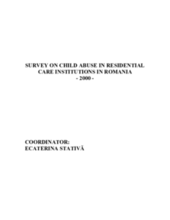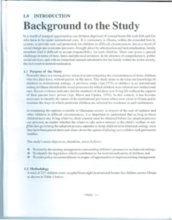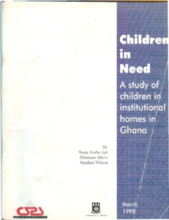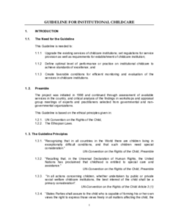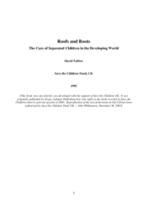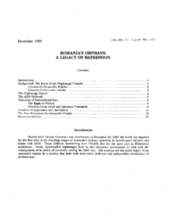Displaying 701 - 710 of 713
Report assessing the overall features of children in residential care institutions with consideration for families of origin, gender, socioeconomic status and type of institution.
This document provides background information to a study conducted on the situation of children in institutional homes in Ghana.
This study was intended to identify existing arrangements surrounding children’s presence in institutional settings, identify legislation that contributes to the institutionalization of children, and make policy recommendations in respect of the opportunities to improve existing arrangements.
This document provides supplemental information to a study conducted on the situation of children in institutional homes in Ghana.
This document is a guideline to facilitate good policy and practice within both institutional care and community-based care settings for children in Ethiopia. It addresses the physical environment, staffing, gatekeeping, child services, reunification, adoption and general administration.
This paper explores the factors surrounding the lives of children that live on the streets or in institutions in Egypt.
In order to investigate orphans' situation and development in Iraqi Kurdistan, samples from the two available orphan care systems, the traditional foster care and the modem orphanages, are examined at an index test and at 1-year follow-up regardin
Save the Children’s research and analysis of residential care services and the need for alternative non-institutional approaches for children separated from their families. This book examines policy and practices from work in Africa, Asia, Latin America and the Caribbean, and Eastern and Central Europe.
Shortly after Nicolar Ceauscu was overthrown on December 22, 1989, the world was exposed for the first time to the shocking images of Romania's orphans, especially its children with disabilities and babies with AIDS.
The present quantitative study of adolescents in orphanages in South Korea explored the following questions: (1) Do adolescents in institutions experience cognitions and feelings about birth parent loss? (2) What is the association between birth parent loss and mental health (depression, trauma), behavior problems (YSR total internalizing, externalizing), and school problems (school engagement, grades)?

